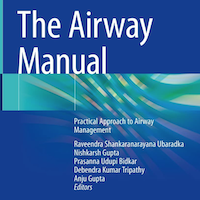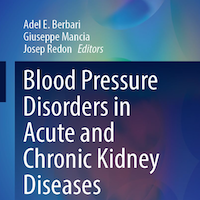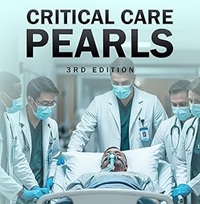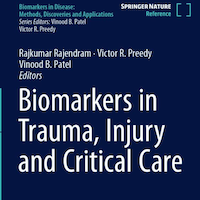Tag: norepinephrine
Beyond the Pressure: Moving Toward Personalized Sepsis Care
In the high-stakes environment of septic shock, the current clinical "gold standard" remains the early initiation of norepinephrine. However, when blood pressure targets aren't met, the next steps often become a pragmatic... read more
Vasopressin vs. Norepinephrine in Neonatal Septic Shock
A retrospective multi-center study analyzed the use of vasopressin (VA) and norepinephrine (NE), two distinct pressors, in 58 neonates with warm septic shock across three Canadian Level-III NICUs between 2015 and 2020. The... read more
Norepinephrine at Extubation: No Weight-Related Reintubation Risk
This multicenter cohort study investigated the association between the use of norepinephrine at the time of extubation and the rate of reintubation within 7 days in critically ill patients, with a specific focus on those... read more
Vasopressin in Septic Shock: When and How to Use the Second-Line Vasopressor
SSC Guideline Recommendation: The Surviving Sepsis Campaign (SSC) weakly recommends adding vasopressin as a second-line agent instead of continuously escalating norepinephrine if a patient's mean arterial pressure (MAP) remains... read more
Burn Resuscitation: The Shift to Precision
Paradigm Shift: The focus is moving away from rigid formulas toward individualized, goal-directed strategies to manage severe burn injury. The Goldilocks Problem: There is increasing emphasis on avoiding both under-resuscitation... read more
Norepinephrine Usage Tips in Perioperative Medicine
Tip 1. Looking beyond vasodilatation: use norepinephrine as first-line vasopressor but reassess the cause of hypotension before escalation. Tip 2. Set a goal of mean arterial blood pressure above 60 mmHg, and individualize... read more
ICU Alert: Unraveling Mortality in Obstructive Pyelonephritis
This retrospective multicenter study investigated in-hospital mortality among 483 patients admitted to the ICU (8 centers) over a decade due to obstructive pyelonephritis, a severe condition often caused by kidney stones,... read more
The REGULATE Trial: Finding the Best Blood Pressure Drug for Severe Brain Injury
The REGULATE trial is a crucial, large-scale, randomized study designed to determine the optimal vasopressor (blood pressure medication) strategy for patients with severe traumatic brain injury (TBI). The goal is to see... read more
The Norepinephrine Salt Shaker: It’s Not the Formulation, It’s the Reporting
All commercially available norepinephrine salt formulations are clinically equivalent. The critical focus for researchers and clinicians must shift from debating the formulation to ensuring clear and standardized reporting... read more
REGULATE Trial: Norepinephrine vs. Vasopressin – The Head-to-Heart Showdown in Severe TBI
REGULATE is the first adequately powered trial to systematically compare these vasopressor strategies in severe TBI. The results are expected to provide an evidence-based foundation for developing individualized vasopressor... read more
Epinephrine or Norepinephrine? The Vasoactive Face-Off in Pediatric Septic Shock
This prospective observational study compared the clinical outcomes of epinephrine (adrenaline) versus norepinephrine (noradrenaline) as the initial vasoactive agent in pediatric septic shock. Study Population: 68 children... read more
Septic Shock MAP Targets: Homogeneous Response, Heterogeneous Harm
This study, which analyzed 776 patients with septic shock, found that overall, there was no significant difference in the response (no heterogeneity) to different blood pressure targets, particularly concerning the primary... read more
Rethinking Blood Pressure Goals: Why High vs. Low MAP Targets Affect Patients with Septic Shock
Based on a study of 776 patients, there's no evidence that different groups of people with septic shock respond differently to a high versus low mean arterial pressure (MAP) target. In other words, there wasn't a "one-size-fits-all"... read more
Managing a Critically Ill Patient with HIV, TB, and COVID-19
Treating a patient with HIV, active tuberculosis (TB), and COVID-19 is an immense clinical challenge due to the complex interplay of these three infections. This rare but dangerous combination significantly increases the... read more
Norepinephrine Dosing: A Historical Look at Reporting and Salt Formulations
Reporting on norepinephrine dosage has been inconsistent due to variations in how drug labels account for different salt formulations. This inconsistency creates problems in clinical practice and research by making it difficult... read more
Association Between Ketamine Use and Mortality in Critically Ill Patients Receiving Mechanical Ventilation
In this retrospective study, we observed that younger patients with acute respiratory distress syndrome (ARDS) may benefit from ketamine use in terms of 14-day mortality. However, these benefits were not observed in longer-term... read more
Extubation in the Operating Room After Elective On-pump CABG Surgery
Although immediate extubation in the operating room following on-pump coronary artery bypass graft (CABG) surgery did not show significant differences in ICU or hospital length of stay (LOS), mortality, or ICU readmission... read more
Vasoactive Agents in Cardiogenic Shock Related to AMI and ADHF
Cardiogenic shock (CS) is a heterogeneous condition associated with exceptionally high mortality rates, despite significant advances in the field of cardiology. The primary causes of CS are myocardial infarction-related CS... read more
Effect on Norepinephrine Administration Timing on Prognosis of Septic Shock Patients
Norepinephrine initiation ≤1 h is associated with lower 28-day mortality in patients with septic shock. Early norepinephrine administration is also associated with a shorter time to achieve MAP ≥65 mmHg, lower 24-h intravenous... read more
Efficacy of β-Blockers in Decreasing Mortality in Sepsis and Septic Shock Patients
This study suggests that the use of β-blockers in sepsis and septic shock patients is associated with a significant decrease in in-hospital mortality and also associated with better patient outcomes. As β-blockers cause... read more
BPRI and Clinical Outcomes in Patients with Septic Shock
Use of the novel dose-effect index, Blood Pressure Response Index (BPRI) was proposed to allow rapid bedside assessment of the reactivity of septic shock patients to vasoactive drugs, as isolated MAP or VIS cannot reflect... read more
Vasoconstriction in Septic Shock
Septic shock is associated with endothelial dysfunction leading to arterial and venous dilation, alterations in regional blood flow distribution, and microcirculatory disturbances. Fluids and vasopressors are the key... read more









